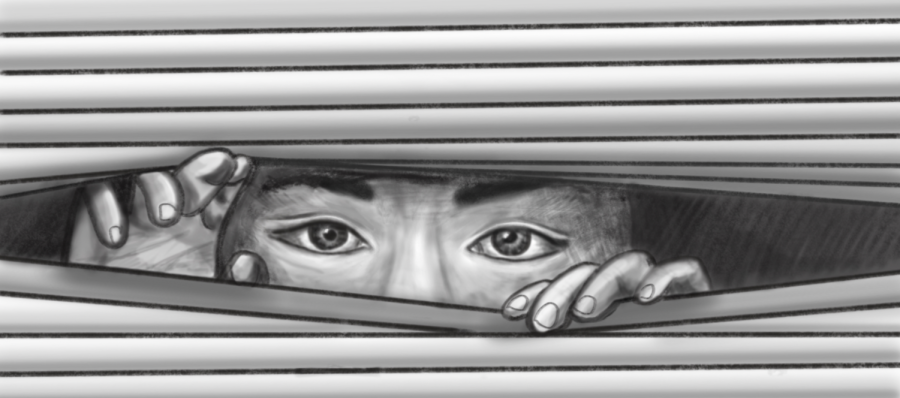Staying in place
Students coping with new realities
The first sign things had gone terribly wrong was when the names of the schools began to bleed together. Parkland, Uvalde, Sandy Hook, Sante Fe, Saugus High: all of them became ‘bad events’, the nuance and outpour of empathy weakened.
The second sign things had gone wrong was when a shelter-in-place had been declared across Palo Alto High School at 9:16am on April 25.
For a moment, my mind went awry. I internally prayed that this wasn’t going to be the place I was struck down—not in first period geometry. Discussions of a shooter, a bomb threat, and, confusingly enough, a bobcat, filled the room with feverous speculation. As quickly as my nerves had been set aflame, they calmed into a worrying, all too familiar feeling. Apathy.
In a time of very tangible school shootings, threats have become increasingly empty. Many use humor to laugh it off: people saying how the shooter must have overslept or placing bets on which students are the most likely to commit such an incomprehensible act. These types of comments are as much a coping mechanism as they are vulgar, insensitive, and distasteful in the face of a subject that involves the death of children, teachers, and officers of law enforcement..
School shootings aren’t a novelty anymore. Students across the country have grown up with them in the same way as any other known constant. Imagining a world without them feels impossible when every time people demand even the possibility of that, they’re promptly shut down in the face of minimal legislative action.
Now, terrible events like school shootings have been well integrated into our culture. SNL parodied the national walkout from schools following the massacre of 17 people at Parkland. Late night comedy hosts now walk a careful balance of tragedy and comedy, having to narrowly avoid causing a public outcry should they take a step “too far.”
This leaves all of us in a particularly precarious place: continue to be perpetually shocked by the violence, continue campaigning for a difference…or fall into this state of acceptance in this new normal. Most of us can only accept this now, not out of want, but out of exhaustion.
None of us want a reality where violence has become tolerable. But in avoiding this, as students, we have to continue taking the leading role on this issue. It’s a task most of us will never feel up to. But in the face of disaster, students must continue to struggle for our legislators to listen, and, until they do, continue student lead action for comprehensive gun legislation.
It is more urgent than ever that our government takes federal action against gun violence in both our schools and in wider society. As long as politicians continue to stall on this issue, so too shall we see the ripples of this cultural acceptance of violence be made very clear. People won’t stop making threats: it’s our job, as students, to mitigate how legitimate they are in the first place and how we react to them emotionally.
